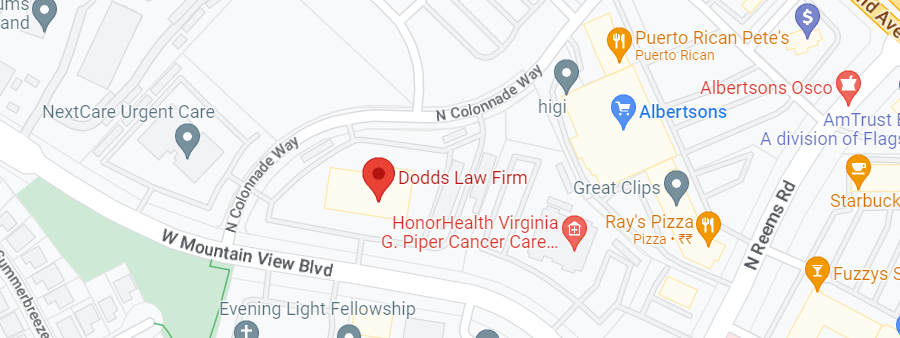Forensic Accountants: Not Just for Hidden Assets
No one envies being in a situation where their marriage is coming to an end. If you’re working with an Arizona divorce lawyer, they may have told you they’re bringing in a forensic accountant. Many people assume this is simply to identify hidden assets, but this is far from the truth.
So, what is the role of a forensic accountant in Arizona divorce cases?
In reality, these financial professionals serve a variety of functions at the end of a marriage. This is true regardless of whether the divorce is contested or uncontested — or whether there’s any suspicion of financial impropriety. This is why having a forensic accountant during your divorce is so important, and once you know their role, you’ll understand why.
Asset Identification and Valuation
At their most basic, forensic accountants identify and value all marital assets and liabilities. This is particularly important in community property states — a category that Arizona falls into. That’s because properties and debts are meant to be divided equally in the event of a divorce. Only properties acquired during the marriage qualify, but even these can be hard to identify.
Here are just a few of the assets a forensic accountant will set out to identify and value:
- Real estate
- Investments (e.g., stocks, bonds, etc.)
- Businesses
- Personal property (e.g., jewelry, vehicles, etc.)
Even if all assets and liabilities are known, assigning fair values can be difficult. For instance, real estate can fluctuate significantly in value over years of ownership. Similarly, figuring out the value of a privately held business — which could include monetary reserves, investments, real estate, and more — can be incredibly complex.
Yes, asset identification is particularly important when one spouse is trying to hide assets — but the role of a forensic accountant in Arizona divorces extends far beyond instances of financial infidelity. That’s because it’s crucial that absolutely nothing is missed during this process. In most instances, there are no “do-overs.”
Income Analysis
You might think it’s as easy as looking at a few paychecks to figure out each party’s income in a divorce. Unfortunately, it’s rarely this simple. Even in some of the most straightforward situations, there are often bonuses and commissions received by one or both parties. This can make calculating income a bit more complicated.
Of course, things become much more challenging if at least one individual owns a business or is self-employed. A forensic accountant would then need to evaluate actual profits rather than just reported income. And while the potential for unreported income streams and “perks” exists with any job, this potential is heightened when someone works for themselves.
This role of a forensic accountant in Arizona divorces extends far beyond property division. The analysis of real income is also critical for calculating potential child and spousal support.
Investigating Financial Discrepencies
It can be incredibly difficult for non-professionals to identify financial discrepancies. Even when such discrepancies are identified, investigating them is a major undertaking. This should never be attempted without a financial professional — it’s not enough to simply point out such discrepancies to the courts. They must be investigated.
Put simply, you need to learn everything you can about these unexpected discoveries. This often involves tracing funds, lifestyle analysis, and detecting potential fraud. These essential tasks can help you secure a more accurate understanding of your and your former partner’s financial situation. Without this, the likelihood of a fair outcome is greatly reduced.
Division of Marital Property
Once all assets and liabilities are identified, it may seem like everything else is “smooth sailing.” Unfortunately, this is rarely the case in community property states. That’s because assets and liabilities aren’t divided based on a sense of fairness — as seen in equitable distribution states. Rather, each individual is supposed to get an equal portion of the marital estate.
Of course, dividing a house or vehicle can be incredibly difficult. Sure, you could sell the asset and split the profit — but this can involve serious disruption to one or both party’s lives. That’s why the role of a forensic accountant in an Arizona divorce also includes creating valuation reports and settlement proposals.
With the help of your attorney, these professionals can help divide complicated estates in an equal manner.
Tax Implications
When two children divide up the money earned at their lemonade stand, they don’t have to worry about much else. Unfortunately, this isn’t the world that we live in as adults. We have to deal with taxes. And while a property division agreement may seem fair on the surface, things can get much more complicated when tax issues pop up.
Fortunately, financial professionals can evaluate the tax implications of various settlement options and provide a Tax Impact Analysis. They can also assist by giving advice on post-divorce financial planning and tax strategies. All of this will typically be done in conjunction with your divorce attorney, so ask your legal counsel if you have specific questions.
Do You Really Need a Forensic Accountant for Arizona Divorces?
There’s no denying that a forensic accountant can prove invaluable to a divorce — especially in a community property state like Arizona. However, it’s also worth pointing out that they will not always be necessary. After all, many divorcing couples have very little in the way of assets. Still, it’s important not to let this assumption alone dictate your decisions.
The reality is that many divorcing couples do not realize just how complicated their financial situation is. One role of a forensic accountant in Arizona divorces is to help former couples figure this out. The best way to decide whether bringing in a financial professional is appropriate in your situation is to work with an experienced divorce attorney.
The team of family lawyers at The Dodds Law Firm, PLC, can provide guidance. Call us at 623-267-0026 to schedule your confidential consultation today.

 CALL US NOW
CALL US NOW





